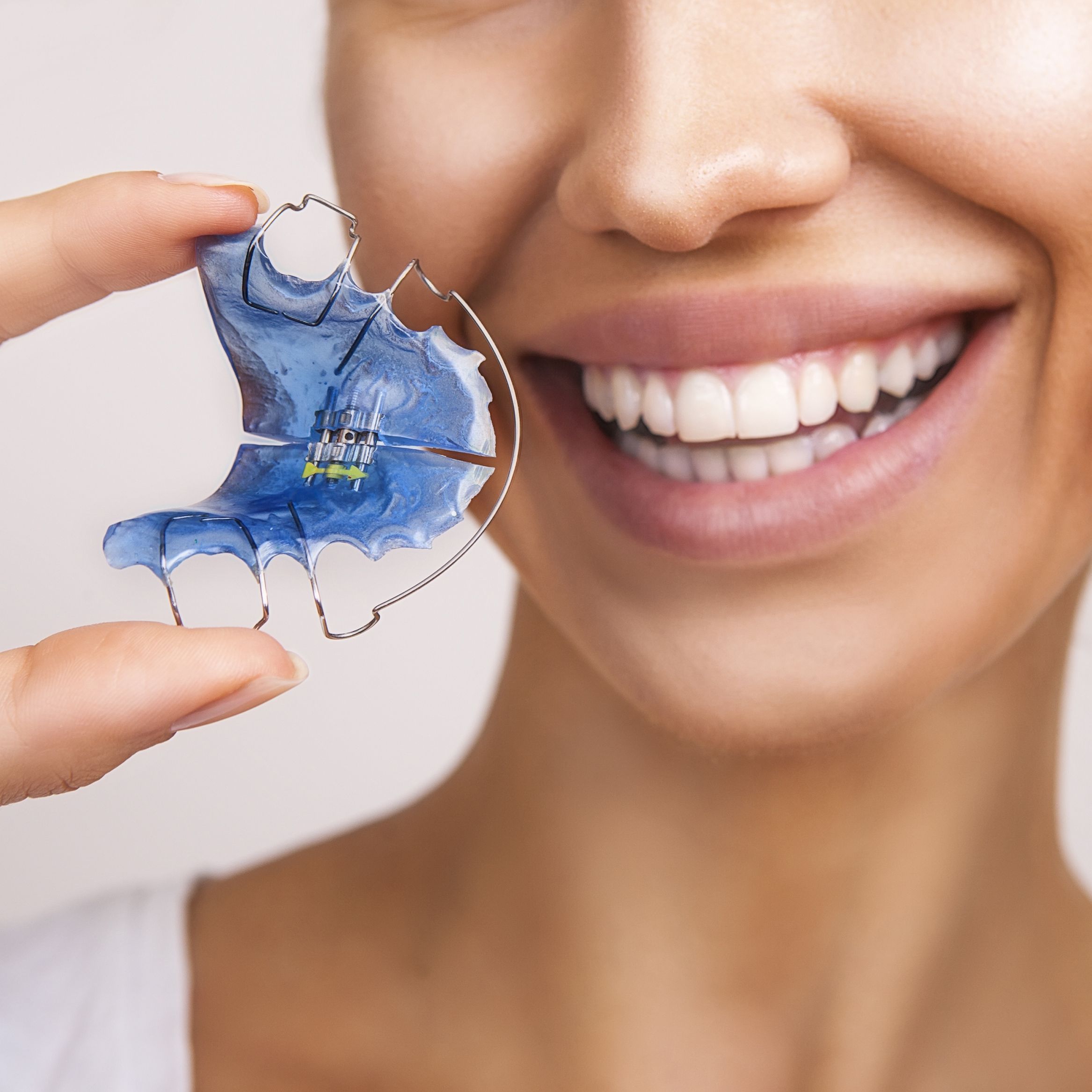How To Clean Retainers
 Retainers are often a key aspect of orthodontic treatment. Retainers are commonly used to hold the teeth in place and preserve orthodontic treatment results, and some people undergo retainers-only treatment to straighten the teeth without braces. In either situation, it is essential that people use retainers exactly as directed. That includes keeping retainers clean.
Retainers are often a key aspect of orthodontic treatment. Retainers are commonly used to hold the teeth in place and preserve orthodontic treatment results, and some people undergo retainers-only treatment to straighten the teeth without braces. In either situation, it is essential that people use retainers exactly as directed. That includes keeping retainers clean.
Clean retainers preserve good oral health, and prevent a buildup of bacteria that can lead to complications such as decay, gum disease, and tooth loss. Dr. Kellyn Hodges is happy to teach our Philadelphia, PA, Bala Cynwyd, PA, and Bensalem, PA, patients how to clean retainers so that they get the full benefits of orthodontic treatment without putting their oral health at risk with unclean appliances.
How Often Should Retainers Be Cleaned?
Whether a person uses a clear retainer (like Invisalign aligners), or one that is made of metal or acrylic, it is best to brush them daily. However, to ensure that bacteria does not build up on retainers, they should be thoroughly cleaned once a week. This may include putting them in a cleaning product mixed with water.
Best Retainer Cleaning Practices
When it comes to keeping retainers clean, people often err on the side of neglect (meaning they don’t clean their retainers at all) or excessive cleaning (meaning they use harsh materials and cleaners). Retainers respond best to natural cleaning practices. The best cleaning practices for retainers are:
- Soak retainers each day (or night) in a solution of distilled water and baking soda (it is also acceptable to soak retainers in distilled water mixed with a couple of drops of castile soap, or plain distilled water).
- Once a week, let retainers sit in white vinegar for about 15 minutes. After cleaning with vinegar, rinse the retainer and let it soak as mentioned above.
- If retainers have buildup or require a deeper clean than usual, bring it to the dentist and ask to have it disinfected.
Cleaning Techniques to Avoid
Retainers are made of porous materials, so anything that is used to clean a retainer can be absorbed by the appliance and then introduced to the mouth when the retainer is worn. If retainers are cleaned with abrasive materials it can create small divots that allow substances (including bacteria) to accumulate even more easily. To preserve the integrity of a retainer and to avoid introducing harmful substances to the body, we recommend that people avoid certain cleaning practices.
- Do not soak retainers in bleach, rubbing alcohol, mouthwash, or boiling water
- Do not place a retainer in a dishwasher
- Do not clean a retainer with a UV sanitizer
Contact Us
Dr. Kellyn Hodges offers a wide range of orthodontic treatments at our practice that allow patients to achieve a healthier, straighter, and more attractive smile. If you would like to learn more about these services, including retainers-only treatment, contact our dental practice online or call (215) 245-5100 to request an appointment.


